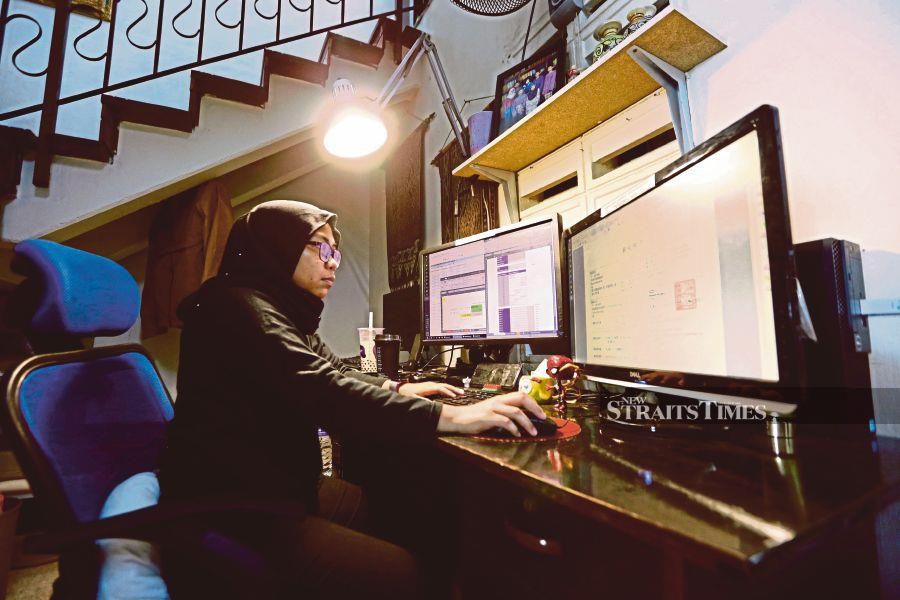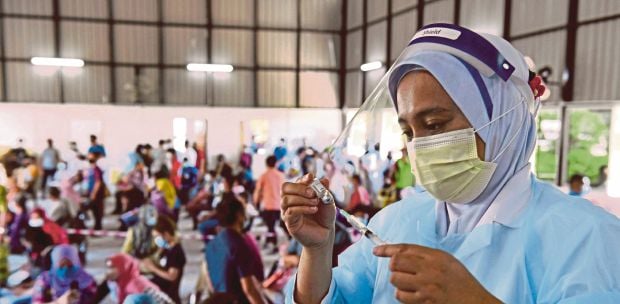WE have seen many accelerated changes since the Covid-19 pandemic broke out almost two years ago.
In the United States, e-commerce had surpassed decadal growth in less than eight weeks at the beginning of the lockdown in 2020. But this slowed in 2021.
Domestic consumption has yet to recover. The slowdown in momentum was seen during the biggest consumer event this year, Singles Day (or 11.11 sales), perhaps due to the weakening economy.
Locally, recent price hikes serve as a reminder that our country is not an exception. With the emergence of the Delta and Omicron variants, consumers will be more conservative in spending, making it challenging for businesses.
Remote working has become a norm that many employees demand during lockdown. Many are ready to quit, as seen in the "Great Resignation" in the US.
Everyone's mental health has been affected one way or another. Most common is mental fatigue from online meetings, WhatsApp messages and increased screen time. Some people have even developed demophobia, a fear of crowds, after prolonged isolation.
The new norm of working or learning from home is taking its toll on students and educators. Many are overwhelmed by fatigue from online classes or meetings and overloaded with offline tasks.
Though many university students are returning to campus, most lectures remain online, draining the passion from learners and educators.
Postgraduate researchers are stressed trying to catch up with delays in their research projects and struggle to graduate on time. Many have given up midway.
But it is not all gloom and doom. Tech industries have benefited the most, while hospitality and tourism suffered the worst.
It took five months for Apple to double its value to US$2 trillion from US$1 trillion accumulated over the last 42 years, while Tesla more than tripled its value to become the world's top car firm, surpassing Toyota, Volkswagen, Honda and Ford combined.
Despite 2021 being the year of recovery, many employers and employees lost their businesses and jobs as companies, big or small, closed for good.
The 6R National Economic Recovery Strategy is a roadmap for our country to survive and thrive from this crisis through resolve, resilient, restart, recovery, revitalise and reform.
However, Malaysians withdrew billions from their Employees Provident Fund savings. It will be a great challenge to revitalise and reform economic growth and development.
It is apparent that countries that have more comprehensive digital infrastructures suffered the least. Businesses can adapt faster to a remote working ecosystem.
Therefore, we urgently need to accelerate digital transformation with a robust future-proof network and digital infrastructure and work towards a 6G nation in the coming decade.
It is heartbreaking to see millions of tonnes of fruits and vegetables go to waste during the United Nations-declared International Year of Fruits and Vegetables. This while hundreds of millions of adults and children are malnourished, according to the World Health Organisation.
We are blessed that our country is not suffering food shortages.
The launch of the National Agrofood Policy 2021-2030 and National Food Security Policy Action Plan to modernise the agro industry and secure long-term food self-sufficiency is timely.
Furthermore, Malaysia's 5R approach of redeployment, repatriation, reemployment, reconciliation and reskilling during the Movement Control Order is in line with the principle of lifelong learning and continuous professional development to ensure a competent local workforce.
The foundation of a great nation is societal welfare. We must not neglect the most vulnerable in society and must ensure social safety nets are enhanced.
With increasing awareness on the importance of taking care of the environment, a new generation is emerging with newfound appreciation for community, cooperation and sacrifice that were taken for granted. A generation that appreciates a sustainable future, science-based evidence and the importance of vaccination to secure life and livelihoods.
The Keluarga Malaysia concept of inclusivity, common ground and contentment is in line with the theme of the 12th Malaysia Plan in advancing sustainability towards a prosperous, inclusive and sustainable Malaysia.
Growth in 2022 will likely be slow as most countries are still grappling with recovery amid intermittent spikes in infections.
This will have socioeconomic impacts that require everyone to work together. Let's hope for a better future for our country, people and planet through change, transformation and reform.
The writer is an associate professor at the Institute of Systems Biology, Universiti Kebangsaan Malaysia





